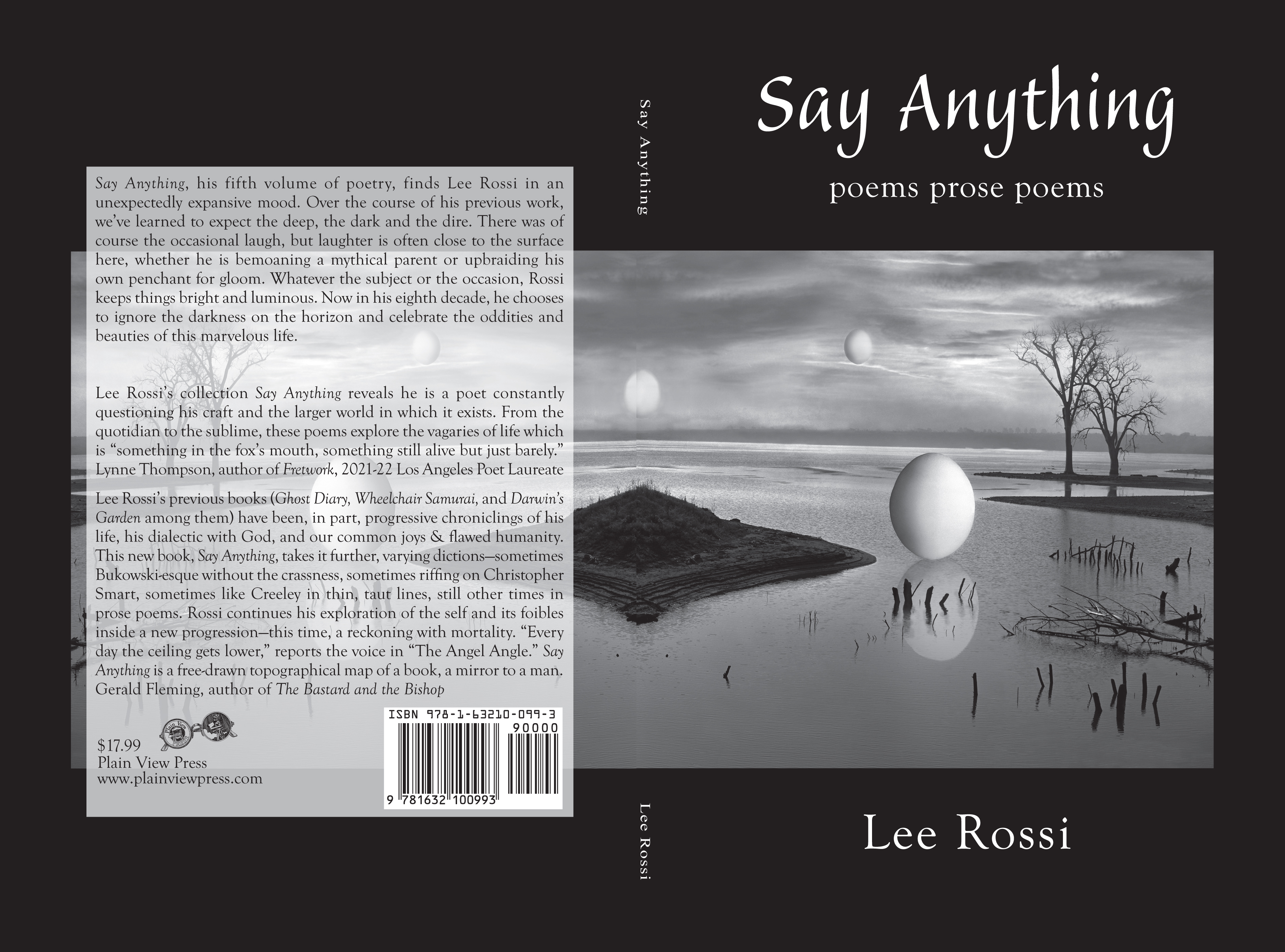Booklife Review

Of the four sections in Say Anything, the first, “Surveillance,” is most centrally focused on the relationship between God and self, colored by the poet’s rich religious history as a former Catholic seminary student. “Cricket,” in particular, illustrates the reciprocal nature of the poet’s understanding of spirituality. “Don’t you see?,” Rossi writes, “without some Gentle Jailer surveilling everything, my kind of life, small as a chigger or a cricket, would go unremarked.” Yet the poet is also surveilling God; here, the writing of poetry is in itself an act of surveillance—and worship—of God.
Such challenging, often moving insights abound. In the section “Cracks and Leaks,” Rossi turns to prose to expand on “Surveillance’s” spiritual groundwork but also to explore the human condition as it relates to mortality, aging, and memory. “Spirit Train” is a fable about a man traveling to Chicago who must change into various animal forms in order to gain passage on the Spirit Train to his final destination. This is a memorable metaphor for the myriad changes the self endures during a lifetime, but it’s also an allegory for spiritual ascension. Readers seeking a spiritual, sophisticated collection will find depth, lightness, and surprising illumination in Rossi’s poetry, “whose only motive is joy.”
Takeaway: Spiritual, philosophical poetry and prose radiating with shadowy brilliance.
Comparable Titles: Tracy K. Smith’s “The Universe as Primal Scream,” Adrienne Rich’s “What Kind of Times Are These”
Production grades
Cover: A
Design and typography: A
Illustrations: N/A
Editing: A
Marketing copy: A


